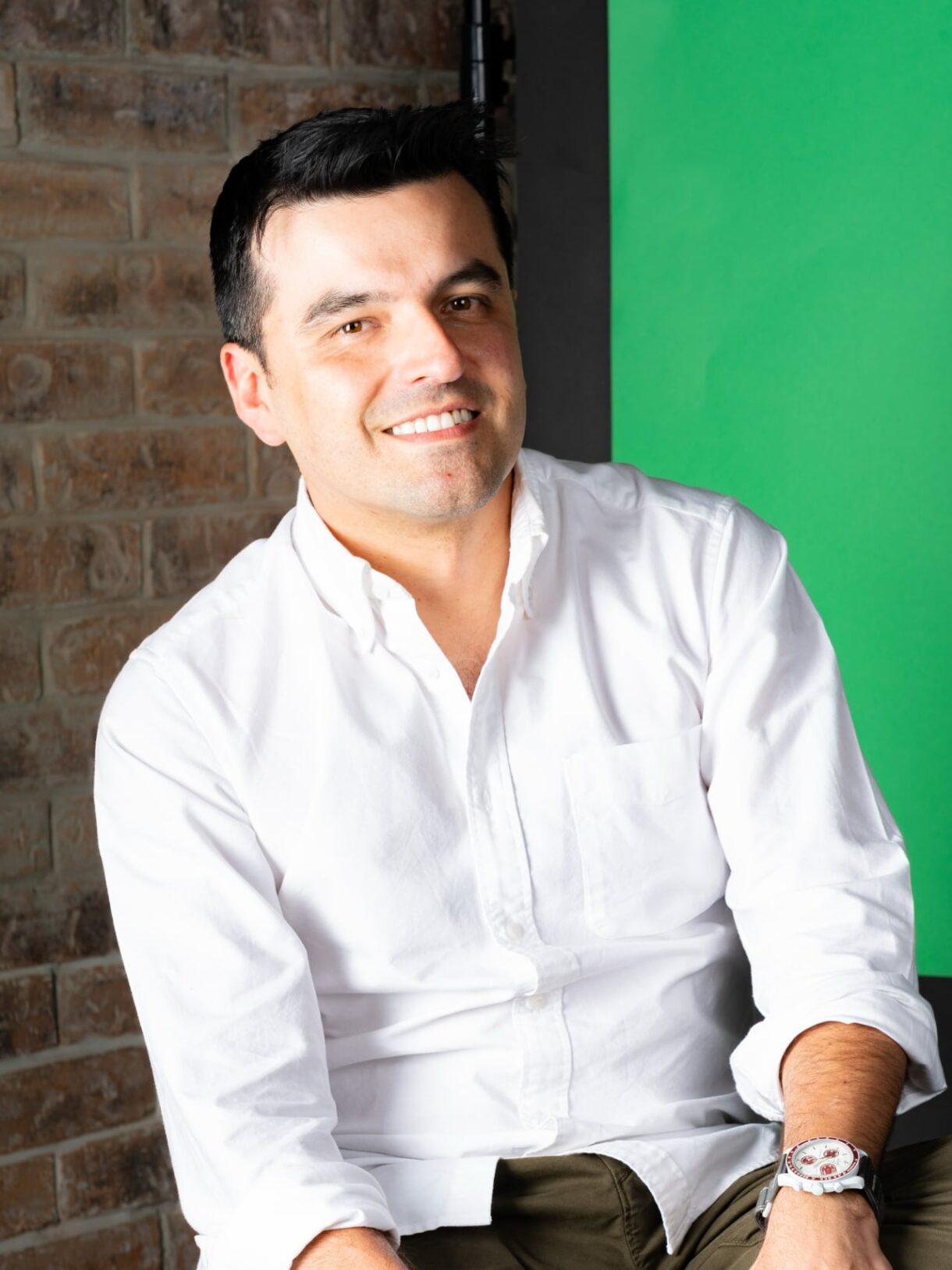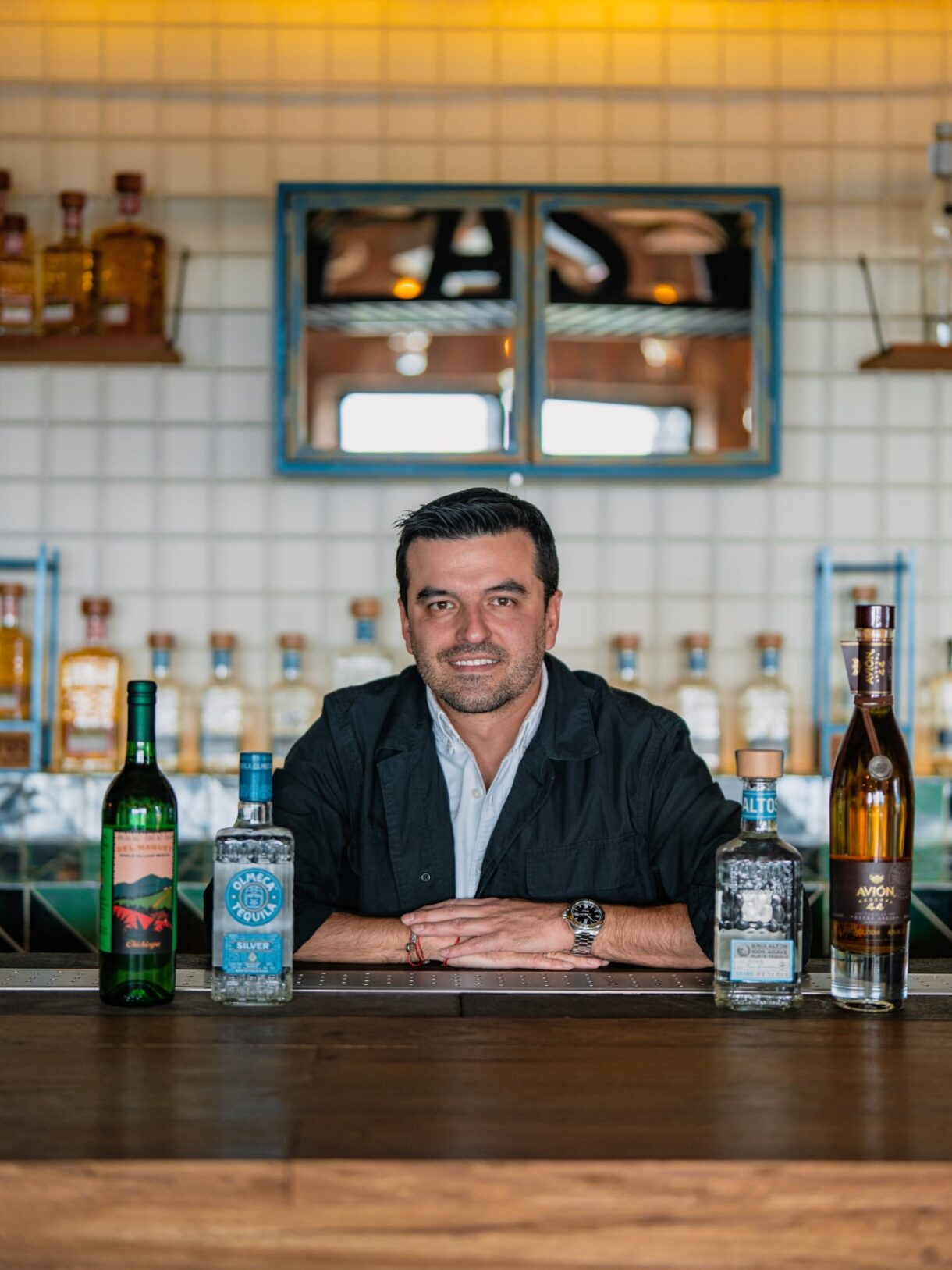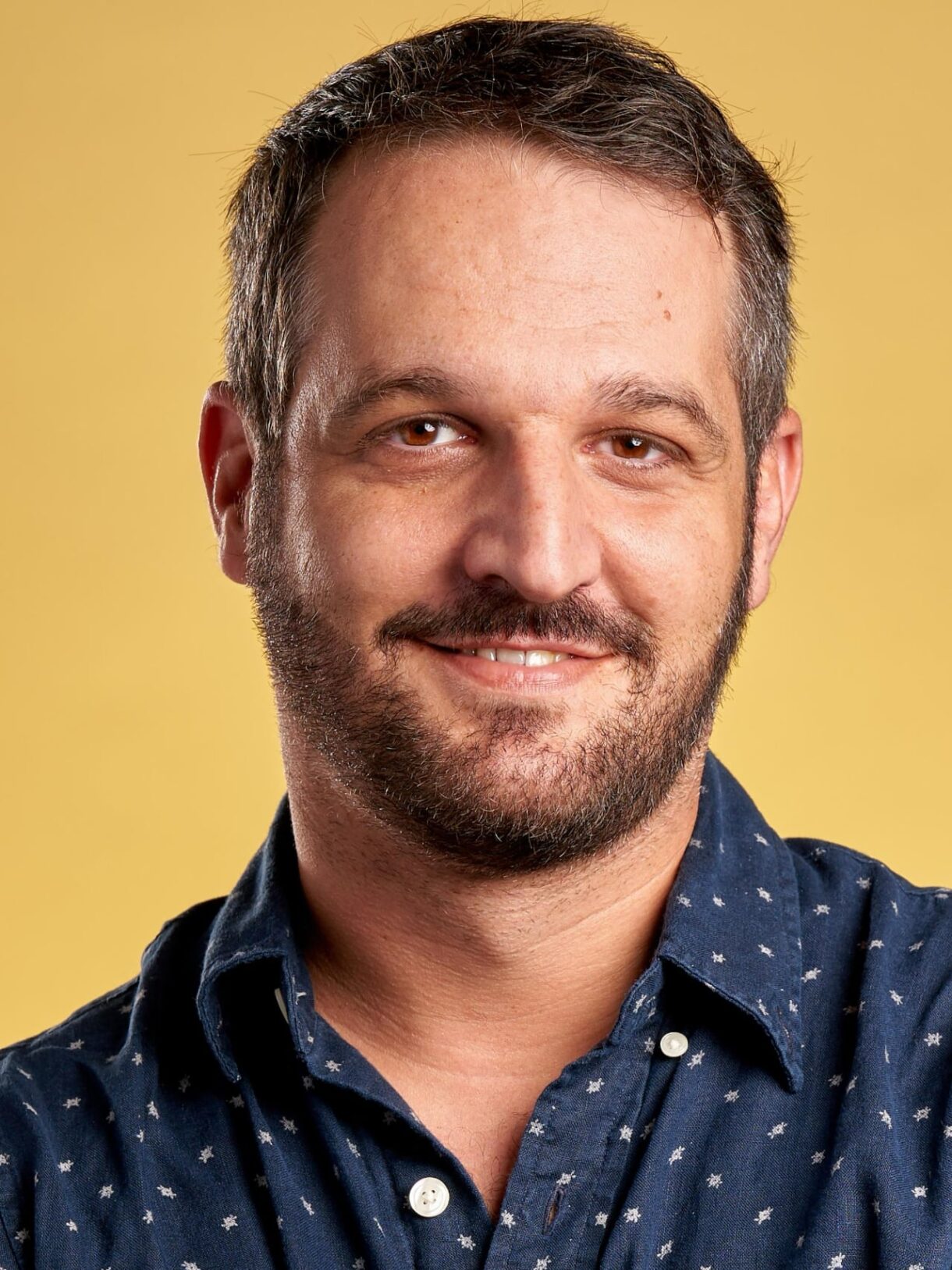Empowering bartenders with education: Why the Tahona Society is more than a competition
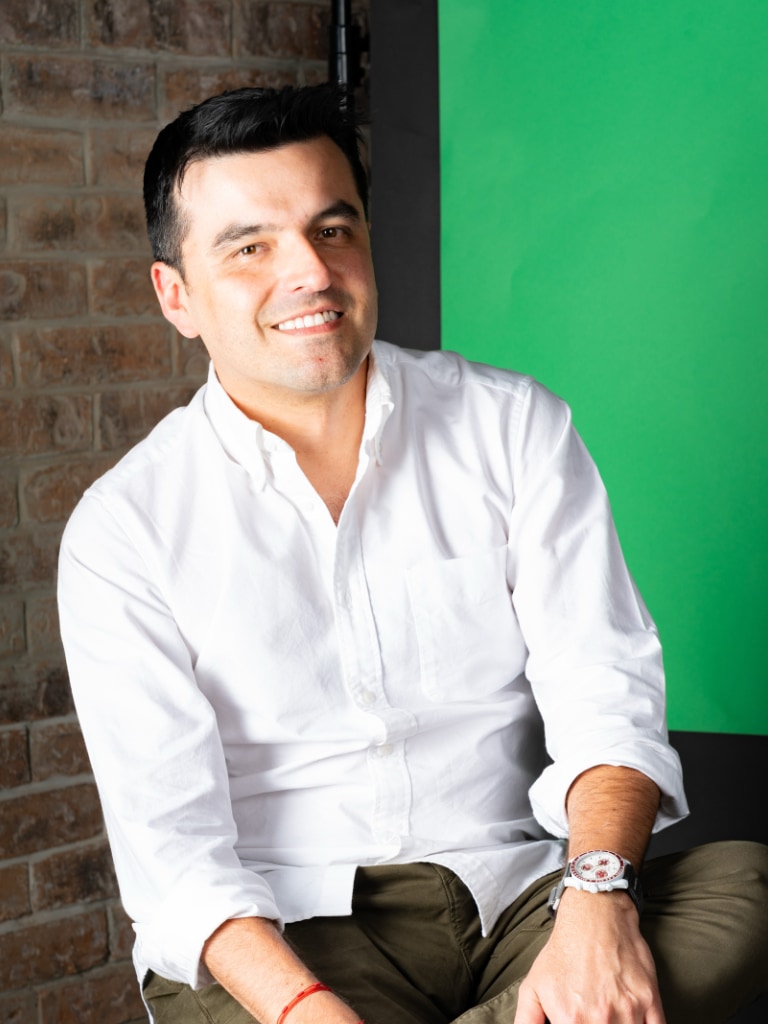
Since 2009, Altos has been helping the global bartender community to level up through the Tahona Society, providing networking, training and knowledge sharing on subjects ranging from sustainability to the power of agave, and entrepreneurship. With the addition of the biannual Tahona Society Competition, Altos has even provided funding for innovative ideas, with $50,000 awarded to those who take the top prize in each edition.
This year, Altos has gone one step further thanks to the launch of the Tahona Society online community, meaning bartenders now always have easy access to insights, key information, and support from their community. Ahead of the 2025 Tahona Society Competition Final, we caught up with Carlos Andrés Ramírez, Global Director Advocacy and PR at House of Tequila, to learn more about why lowering the barriers to entrepreneurship is so important to Altos, and how the new Online Community contributes to that goal.
For more than 15 years the Tahona Society has been helping bartenders with everything from education to networking. Why does the bartender community continue to be so important for Altos?
Because bartenders and the Tahona Society are interlinked with how Altos was born – Altos was a co-creation of two of the world’s most recognized bartenders, Henry Besant and Dre Masso.
They immediately realized we needed to educate the trade community on the wonders of agave. Back then, a lot of people were still asking if tequila was made of a cactus! So the need for an education platform was clear, and we could see that there were people in the bartending world that were really interested in learning more about it. We decided to help to expand that education.
We believed strongly that we needed to nurture the community of bartenders with this knowledge and help them use it over the years. It doesn’t just give prestige to the brand, but also the liquid. That’s how the Tahona Society was born – a community of bartenders that believe in good, high quality tequila, and believe in the values of Altos, and sharing them.
The Tahona Society has the philosophy of being more than a competition. How would you describe it best?
The Tahona Society is fundamentally a living community of bartenders sharing the same values, with a platform to share their knowledge.
Beyond the competition itself, we have an app where the members are engaged, supporting each other, sharing knowledge, and networking.
We give them tools as well as information and top-level coaching, so they can unlock more knowledge in terms of entrepreneurship and how to make this unique lifestyle of being a bartender a sustainable one. Insight on everything from work-life balance to finance and more.
How does the Tahona Society Competition fit into this philosophy?
It has changed a lot since its inception. In the early days it started out as a margarita competition! But in 2018 we reflected upon just how many cocktail competitions there are out there. We decided to stop, rethink, and refocus on what fits the values of the Tahona Society. We did some extensive research among bartenders and what we discovered was that they need coaching and education.
Many of our seminars and discussions already focused on doing more than making cocktails behind a bar – there were already many other academies and resources for cocktail mastery. That isn’t the purpose of the Tahona Society.
We did extensive research among bartenders and discovered that they need coaching and education.
So to go one step further for the community, we reached out to graduates from the Harvard Innovation Labs, Agenda28, who became Tahona Society coaches. Those coaches focused on teaching how to become entrepreneurs and lead projects that will make an impact on the industry.
We decided to create an open platform for bartenders to apply with their big ideas – initially focused on sustainability. It could be upcycling, recycling, or something focused on having an impact on the community or on nature. The floor was open. We got more than 100 applications with incredible ideas. We were pleasantly surprised – compared to a simple concept like a cocktail competition, we thought this new idea could be a risk. What if we don’t get enough applications?
It was fascinating to see the reactions of the applicants, as it really took them out of their comfort zones. Pitching to a group of judges to win $50,000 for your dream idea is a very different challenge to being behind the bar, where these people are all super comfortable. The first winner was Mind the Bar from Canada, a project providing 24/7 support for the mental stress of being a bartender.
It has since developed into a huge platform and website with professional psychologists thanks to the big bang moment of the pitch. The uniqueness of that first winner really got the ball rolling. Two years later we had a Cuban project as winner, La Mata, focusing on the lack of ingredients and products available there to make cocktails. They now have a local production facility making their own cordials for cocktails and the entire hospitality industry there.
Pitching to a group of judges for $50,000 is a different challenge to being behind the bar, where the entrants are all comfortable.
Then there was a winner in Colombia, Green Apple: Zero Glass Waste Cartagena, who created a glass recycling scheme, converting old glass from bottles into sand that can be returned to the ocean, plus producing new bottles, vessels and lamps. It created around 200 jobs. Those winners really sum up what the competition part is all about.
The format is now well established: local winners are selected, then they then come to Mexico where they have several months of coaching from Agenda28, and can refine their project so it’s better prepared for the Global Final in September where the winner is chosen.
Bringing in experts from the Harvard Innovation Labs shows how far the Tahona Society goes to help increase knowledge. What kind of insights do Agenda28 provide?
Agenda28’s co-founder, Valerie Kramis is one of our coaches and a truly brilliant person. They have worked on a lot of different projects for us outside of Tahona Society, so the finalists are getting access to a level of knowledge that we also use and value ourselves as a brand. At our Casa Altos HQ for example, we have a whole range of sustainable products developed from agave – shampoo, soap and more. That was all developed by Agenda28.
They’re experts on a broad range of topics, with Valerie focusing on entrepreneurship in her role as an official coach since 2018. She and the team are in direct contact with the local winners in each market as soon as they win. Since March this year’s local winners have been receiving constant training and coaching before the big global final in September here in Mexico.
Valerie has stressed that the level of submissions is getting higher and higher each year, making it more and more difficult to choose a winner. This year is the first time ever that we have three local winners from the US for example, which reflects how high the level is.
What have previous winners of the Tahona Society Competition said about how it helped them?
For the winners of the $50,000 prize we of course hear that it can be life changing. But beyond that, we often hear that, even for the people who didn’t win the prize, it changed their lives, because it helped them to get financing, to do marketing, find local investors.
They’re still bartenders, but they become entrepreneurs. They do this precisely because they love bartending and wanted to find a way to do it for the rest of their lives in a sustainable way. This is exactly what Altos and the Tahona Society is all about – caring for this industry, making an impact on it and making it more sustainable.
It feels great to give back to our community with high quality knowledge. We’re proud that we help them to network in particular – international relationships are built, and global ambassadors are made. Simon Kistenfeger for example was one of our Tahona Society winners many years ago. Now he is an international brand ambassador for us, travelling the world.
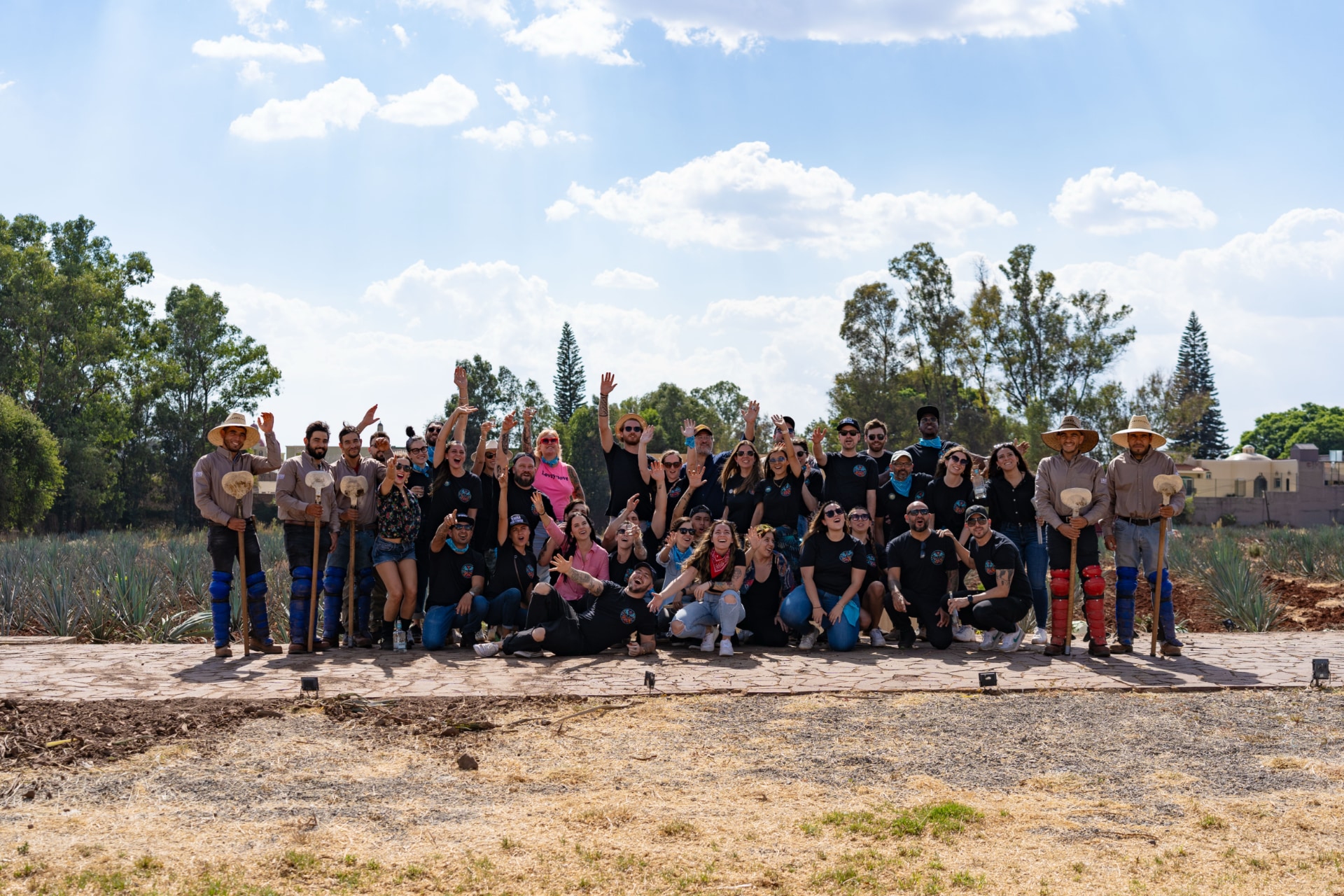
The launch of the new Online Platform takes the Tahona Society one step further, meaning knowledge and resources are always available, from any location. Why did Altos decide it was important to create a knowledge hub?
We already had both the website and our newsletter with resources available there, as well as direct communication via WhatsApp groups and other avenues. But we realized it would be valuable to centralize everything into one platform.
We thought – lets unify everything and have a single platform where there can be direct communication there. You can create a profile, connect with other members, connect with our coaches from the Harvard Innovation Labs, and receive information on the competition, participation and more. All in one place.
Launching a platform can be scary, but we had great insight from Agenda28.
We launched the platform in late February, so it is still very new, but we have more than 500 members from organic growth alone, with engagement above seven percent. The quality of the conversations and the constant communication between members is great to see. We expect the numbers will increase too once we do some media investment in the near future.
Launching a platform can sound scary, but to be honest it wasn’t, thanks in no small part to Valerie and Agenda28. She gave us great insight on the best tech platform to use as the foundation, and from there we just had to make sure it had our look and feel, plus the assets we want to make available. The app version will be available on Android soon then iPhone shortly after.
Could you give us an overview of some of the useful resources available there?
Along with the essentials like information on upcoming events, a member directory and suggestion box, one thing that has worked really well is a hospitality jobs hub.
If a quality bar from the 50 Best or a great neighborhood bar somewhere contacts us and says they’re looking for a great barback, or seeking a bar administrator, or head bartender, we can then upload it there so our members can go and check if there are jobs they may be interested in applying for.
It’s another example of building a bridge between them and the industry. We also work closely with SIP (Share. Inspire. Pioneer), Pernod Ricard’s global advocacy platform, to share information about scholarships and events they are facilitating around the world. There’s even a calendar style feature with the biggest trade shows in the world listed, so members can find out what’s happening at Tales, or the Roma Bar Show and so on.
The Tahona Society platform contains a wide range of resources with expertise and knowledge across a broad list of topics for the industry.
In particular I love the networking clusters features, where members can share and participate in conversations, and discuss their ideas and projects with coaches. There’s also additional expertise beyond the coaching on health and work-life balance.
One of our global brand ambassadors is an expert on nutrition, and there’s information on sleeping correctly, something that is very important for a bartender to be conscious of. In summary there is a wide range of documents and resources with expertise and knowledge across a broad list of topics for the industry.
What does Altos ultimately hope the Tahona Society Online Platform will achieve?
It brings equity to our brand, gives us credibility, and allows us to keep nourishing this very important community. Then of course there’s the fact that we sell tequila, and this helps give awareness and credence to tequila, which impacts the number of venues, menus, listings and more in which Altos is present, across the world. People become interested because they see that not only is this a quality liquid, but the brand is doing things the correct way too.
Our ambition is to hit a target of 5000 members in the next couple of years for the platform. I really believe we’re capable of that. But beyond that number, the goal is to build brand equity and further foster community in the long-term.
You mentioned that the level of entries for the competition keeps getting higher. What stood out about this year’s finalists?
That there’s such a wide variety of strong projects, from innovative ways to reuse surplus produce in food and cocktails, to mobile breast cancer screening for bars, and more. A huge range, which also makes choosing even more complicated.
Perhaps our biggest challenge is, in light of how strong all of the ideas are, thinking of ways to help those who don’t win. Can we help them to get in contact with investors who would be willing to back their project? Help them to leverage their visibility?
The Tahona Society Competition final is five packed days with a lot happening throughout.
One day, we would love to have a fair style event where all the finalists with these great ideas could show their concepts to angel investors and we could help be a first bridge to making their dream ideas become a reality.
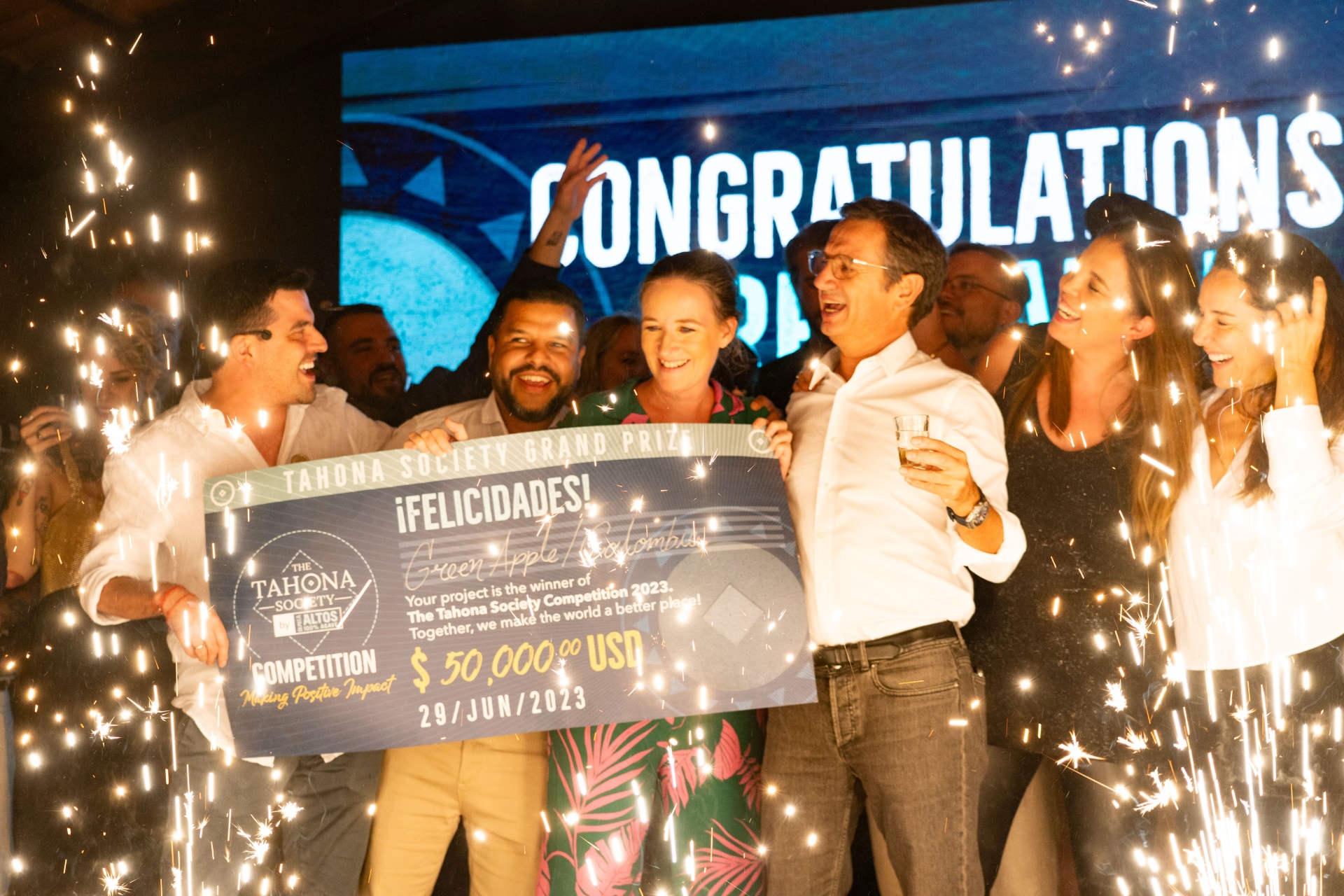
Finally, what is it like being part of the grand finals in September?
A really fun week in Mexico! A lot of hard work, but a lot of fun. On one day the finalists go to our distillery to see the process behind creating Altos, and have a tasting session with our master distiller.
They also meet our Tahona Squad for the first time – a group of icons from the industry who could be previous winners of the Altos Bartender’s Bartender Award from The 50 best.
High quality trade media are there, plus wider media like Forbes and many more. There are always a bunch of surprises too.
And of course, one-on-one coaching with the judges before the finalists pitch, which happens on the last day before the winner is announced at night. It’s five packed days with a lot happening throughout.
